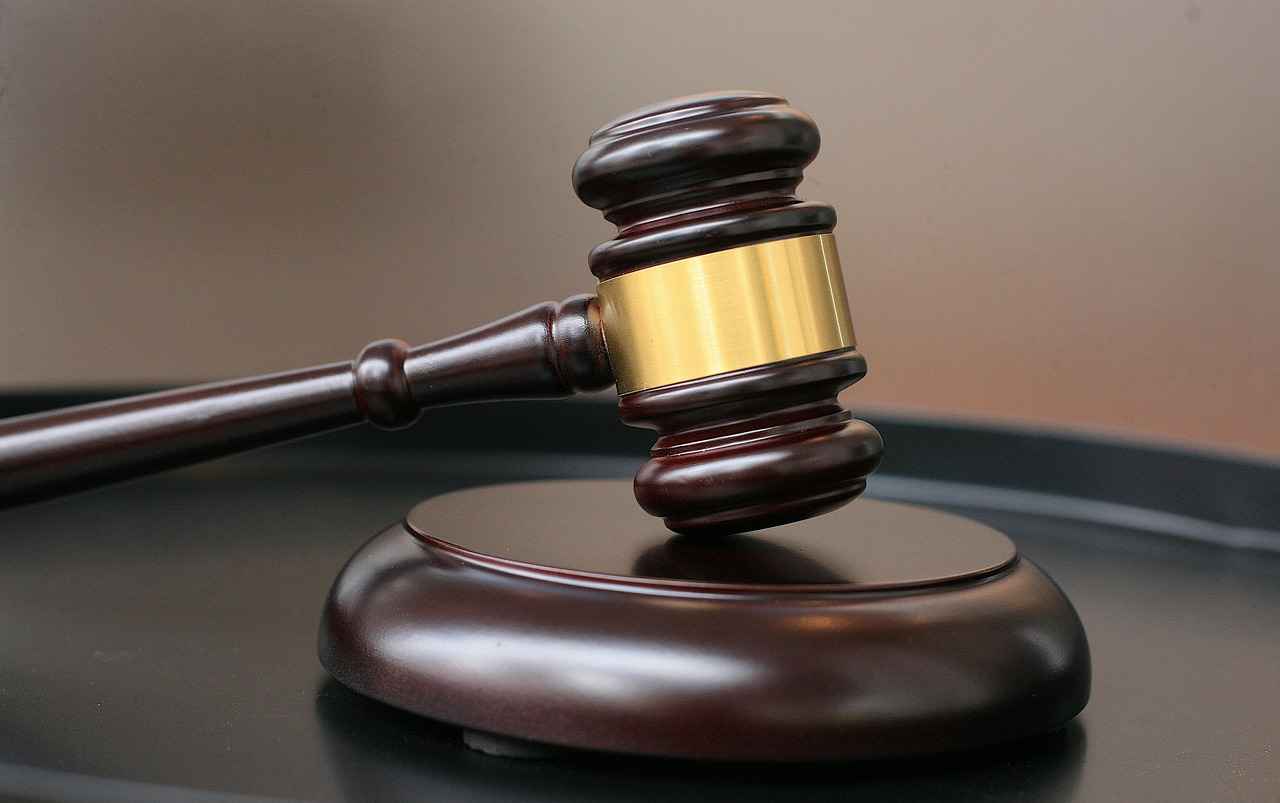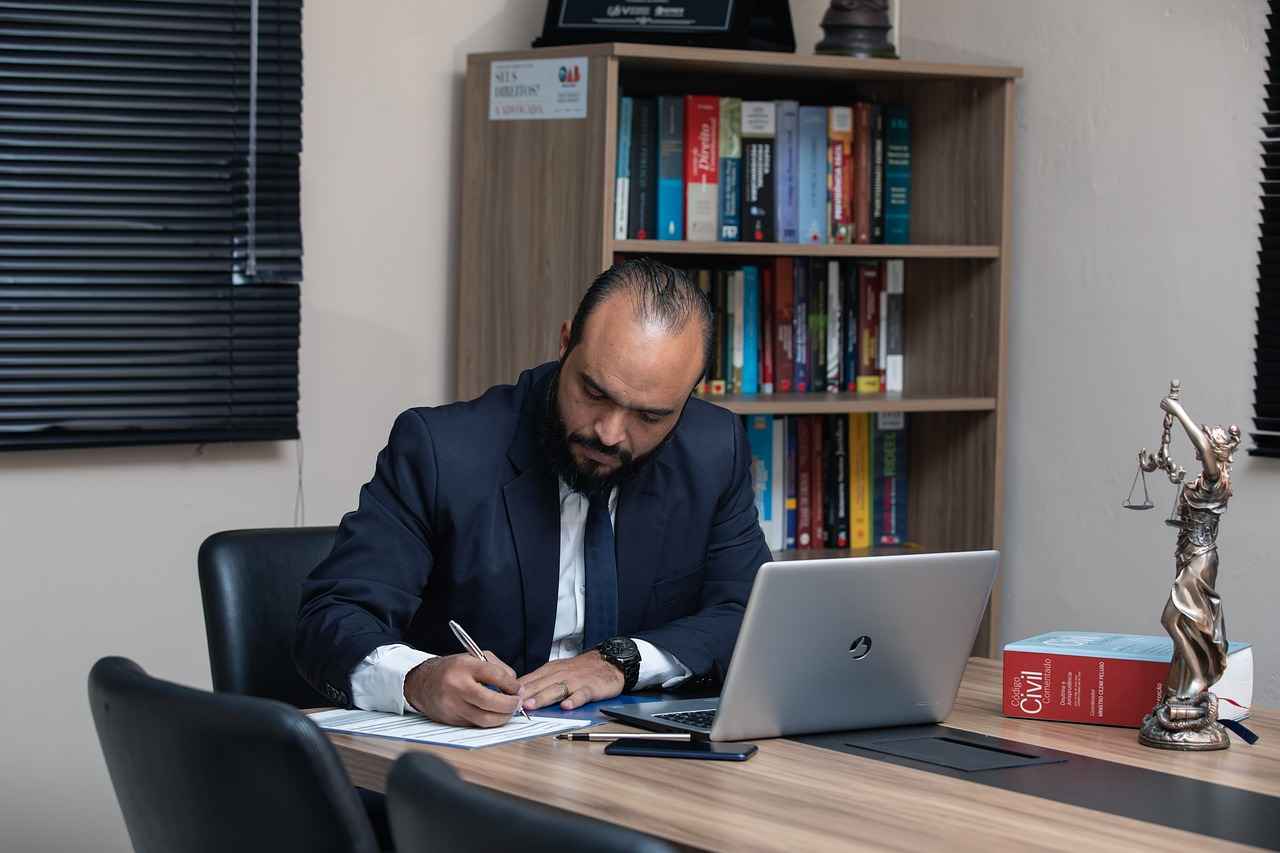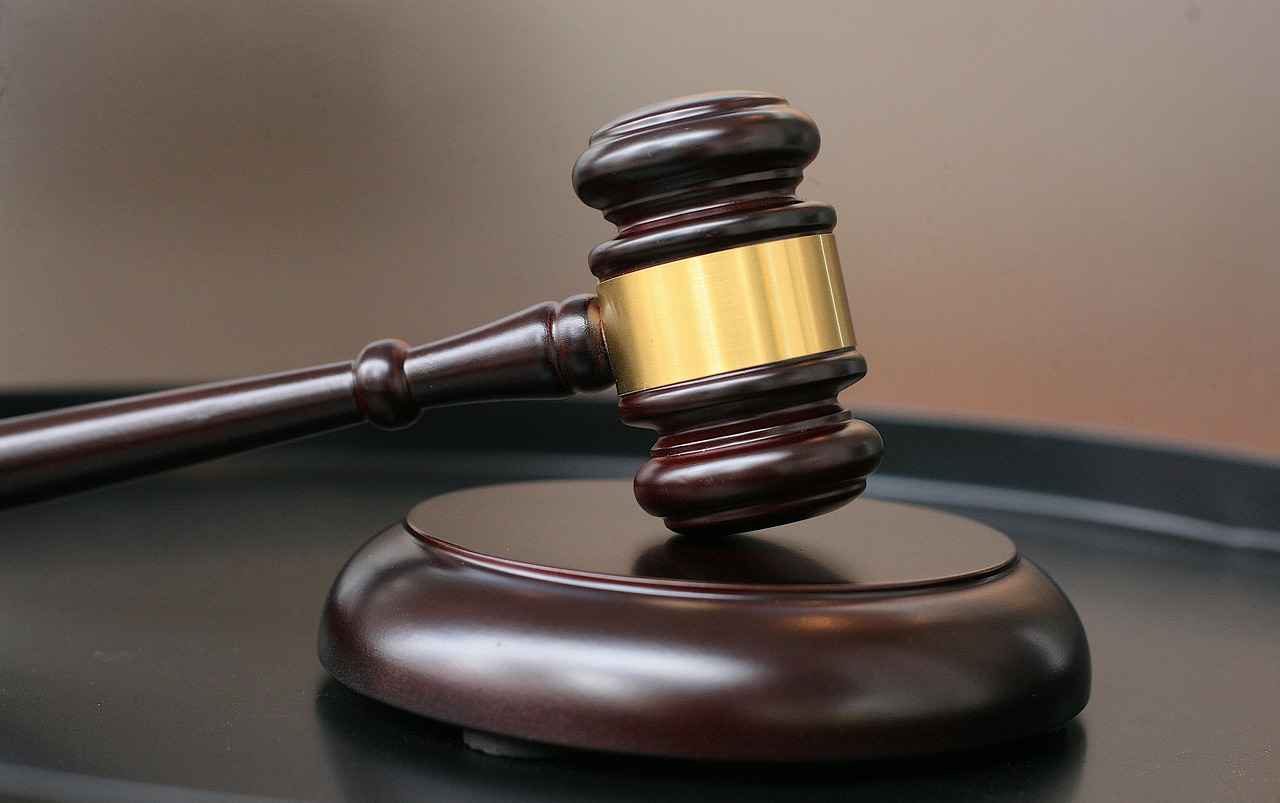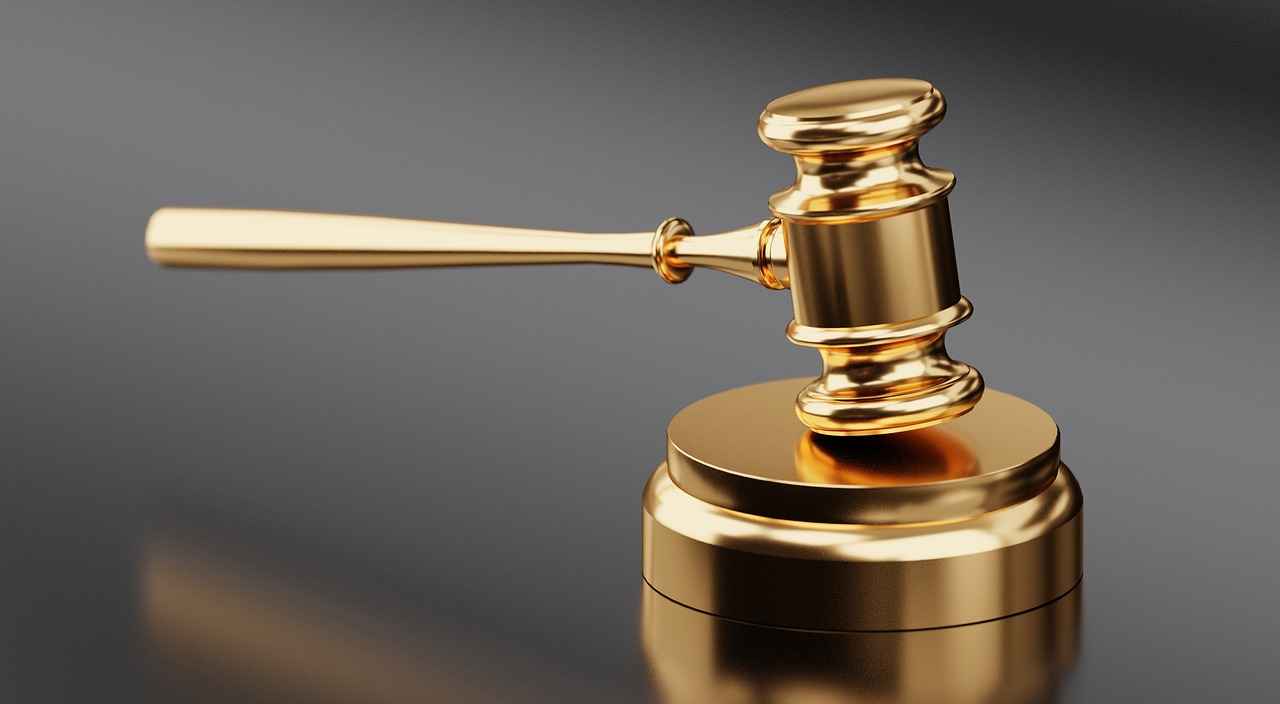This article provides an overview of the most common types of legal cases in the U.S. and offers expert guidance on finding qualified attorneys in Baltimore, Maryland.
Understanding Personal Injury Cases
Personal injury cases are among the most prevalent in the legal system, encompassing incidents such as car accidents, slip-and-fall accidents, and workplace injuries. Individuals often seek compensation for injuries caused by another party’s negligence. When pursuing a personal injury claim, it is essential to gather evidence such as medical records, accident reports, and witness statements to substantiate your case. In Baltimore, seek attorneys who specialize in personal injury law and have a proven track record of successful settlements.
Medical Malpractice: What You Need to Know
Medical malpractice occurs when healthcare professionals fail to provide the standard of care, resulting in patient harm. This area of law is highly specialized and requires a thorough understanding of medical procedures and standards. To find a qualified attorney, look for those with experience in medical malpractice cases and a history of favorable outcomes. They should also have access to medical experts who can testify on your behalf.
Breach of Contract: Navigating Legal Obligations
Breach of contract cases arise when one party fails to fulfill their contractual obligations. This can lead to disputes that require legal intervention. Individuals should seek attorneys experienced in contract law who can help negotiate settlements or represent them in court. It’s important to review an attorney’s previous cases related to breach of contract to ensure they have the necessary expertise.
Property Disputes: Resolving Ownership Conflicts
Property disputes can become complex, often involving disagreements over ownership, boundaries, or property use. Legal expertise is crucial in these cases to navigate local laws and regulations. When searching for an attorney in Baltimore, consider those who specialize in real estate law and have a solid understanding of property rights. Look for attorneys with a good reputation in the community and positive client reviews.
Landlord-Tenant Disputes: Rights and Responsibilities
Landlord-tenant disputes frequently arise over lease agreements, eviction processes, or property maintenance issues. Understanding legal rights is essential for both parties involved. To find a qualified attorney, seek those with experience in landlord-tenant law and who are familiar with local housing regulations. It’s beneficial to choose attorneys who offer initial consultations to discuss your situation without obligation.
Defamation Cases: Protecting Your Reputation
Defamation involves false statements that harm an individual’s reputation, encompassing both libel (written) and slander (spoken). Legal action may be necessary to restore one’s good name. When seeking an attorney for a defamation case, look for those with experience in media law and a history of handling similar cases. They should be able to guide you through the complexities of proving defamation and protecting your rights.
Employment Disputes: Navigating Workplace Issues
Employment disputes can arise from wrongful termination, discrimination, or harassment. Knowing your rights as an employee is vital in these often-sensitive situations. When searching for an attorney, prioritize those who specialize in employment law and have experience with cases similar to yours. Check their credentials and client testimonials to ensure they have a strong track record.
Product Liability: Holding Manufacturers Accountable
Product liability cases arise when defective products cause harm to consumers. Understanding the legal grounds for these cases is essential for seeking compensation. Look for attorneys with expertise in consumer protection law and a history of winning product liability cases. They should be well-versed in the complexities of proving fault and damages in such cases.
Wrongful Death: Seeking Justice for Loved Ones
Wrongful death cases occur when a person’s negligence leads to another’s death. Families often seek compensation for their loss through legal channels. To find a qualified attorney, seek those who specialize in wrongful death cases and have a compassionate approach. They should be experienced in navigating the emotional and legal complexities involved in these sensitive cases.
Class Action Lawsuits: Standing Together
Class action lawsuits allow a group of individuals to collectively sue a defendant for similar grievances, often relating to consumer rights or corporate wrongdoing. When looking for an attorney to handle a class action case, prioritize those with experience in mass tort litigation and a successful track record. They should be able to demonstrate their ability to manage large-scale cases effectively.
Understanding Assault and Battery Charges
Assault and battery involve intentional harm or the threat of harm to another person. Legal representation is crucial for both victims and the accused in these serious cases. When seeking an attorney, look for those with a strong background in criminal defense and a history of handling assault cases. They should be able to provide a clear strategy for your defense or prosecution.
Drug Offenses: Navigating Legal Consequences
Drug offenses encompass a range of charges from possession to trafficking. Understanding the legal implications can help individuals navigate their cases effectively. Seek attorneys who specialize in drug law and have experience with the specific charges you face. They should be knowledgeable about the latest drug laws and able to provide a robust defense strategy.
Theft and Burglary: Legal Definitions and Consequences
Theft and burglary cases involve unlawful taking or entering with intent to commit a crime. Legal representation is essential for defending against these serious charges. When searching for an attorney, prioritize those with expertise in criminal law and a successful history of defending theft cases. They should be able to provide a comprehensive defense strategy tailored to your situation.

Understanding Personal Injury Cases
When it comes to legal matters, understanding the nuances of various case types is essential for anyone seeking justice or compensation. One of the most prevalent categories within the legal system is personal injury cases. These cases arise when individuals suffer injuries due to the negligence or wrongful actions of another party. Common incidents include car accidents, slip-and-fall accidents, and medical malpractice. Understanding the intricacies of personal injury law can significantly impact the outcome of a case.
Personal injury cases are not limited to just physical injuries; they can also encompass emotional distress and psychological trauma. For example, victims of car accidents may experience not only physical injuries but also anxiety and post-traumatic stress disorder (PTSD) as a result of the incident. Similarly, individuals who suffer from slip-and-fall incidents may face long-term repercussions, including chronic pain or loss of mobility.
In the United States, the legal framework surrounding personal injury cases is primarily based on negligence. To establish a successful claim, the injured party must prove that the other party acted negligently, leading to the injury. This often involves demonstrating that the responsible party had a duty of care, breached that duty, and caused harm as a direct result of that breach.
For those seeking compensation, it is crucial to document every aspect of the incident. This includes taking photographs, gathering witness statements, and obtaining medical records. Such evidence can be vital in substantiating a claim. Additionally, individuals should seek legal representation from attorneys who specialize in personal injury law. A qualified attorney can guide victims through the complexities of the legal process, negotiate with insurance companies, and advocate for fair compensation.
When searching for a personal injury attorney, consider the following tips:
- Look for specialization: Choose an attorney who specializes in personal injury law and has a proven track record of successful cases.
- Check credentials: Verify the attorney’s qualifications, including their education, bar membership, and any relevant certifications.
- Read reviews and testimonials: Look for client feedback on platforms like Avvo or Martindale-Hubbell to gauge the attorney’s reputation.
- Schedule consultations: Many attorneys offer free initial consultations. Use this opportunity to ask questions and assess their communication style.
- Avoid red flags: Be cautious of attorneys who guarantee outcomes, pressure you into signing contracts, or lack transparency about fees.
In summary, personal injury cases are multifaceted and require a thorough understanding of the law. By documenting incidents carefully, seeking specialized legal representation, and being diligent in the selection process, individuals can enhance their chances of obtaining the compensation they deserve.

Medical Malpractice: What You Need to Know
Medical malpractice is a critical area of law that focuses on the negligence of healthcare professionals, which can lead to significant harm to patients. This form of negligence occurs when a medical provider fails to adhere to the accepted standards of care within the medical community, resulting in injury or even death. Understanding the nuances of medical malpractice is essential for those who find themselves in situations where they have been adversely affected by medical errors.
In the United States, medical malpractice cases can arise from a variety of situations, including but not limited to:
- Misdiagnosis or Delayed Diagnosis: When a healthcare provider fails to correctly diagnose a condition or delays in providing a diagnosis, this can lead to ineffective treatment and worsening of the patient’s condition.
- Surgical Errors: Mistakes during surgery, such as operating on the wrong site or leaving surgical instruments inside a patient, can have devastating consequences.
- Medication Errors: Incorrect prescriptions or dosages can lead to severe adverse effects, harming the patient instead of helping them.
- Birth Injuries: Negligence during childbirth can result in injuries to both the mother and the child, leading to lifelong complications.
For individuals seeking justice in cases of medical malpractice, it is crucial to understand the legal framework that governs these cases. In most states, the burden of proof lies with the plaintiff, meaning that the injured party must demonstrate that the healthcare provider’s actions fell below the standard of care and directly resulted in harm.
Finding a qualified attorney who specializes in medical malpractice is essential for navigating this complex area of law. Here are some practical steps to ensure you choose the right legal representation:
- Research Specialization: Look for attorneys who specifically focus on medical malpractice cases. Their experience will be invaluable in understanding the intricacies of your case.
- Check Credentials: Verify the lawyer’s qualifications, including their education, years of practice, and any special certifications in medical malpractice or personal injury law.
- Read Reviews: Online reviews and testimonials from previous clients can provide insight into the attorney’s track record and their approach to handling cases.
- Consult Multiple Attorneys: Schedule consultations with several lawyers to discuss your case. This will give you a feel for their communication style and whether you feel comfortable working with them.
- Ask About Fees: Understand the attorney’s fee structure. Many medical malpractice lawyers work on a contingency fee basis, meaning they only get paid if you win your case.
Be aware of red flags when selecting an attorney. If a lawyer makes unrealistic promises about the outcome of your case or pressures you to sign a contract quickly, it may be best to seek representation elsewhere. Additionally, ensure that the attorney is responsive to your questions and concerns; effective communication is key to a successful attorney-client relationship.
In conclusion, medical malpractice is a serious issue that can lead to life-altering consequences for patients. By understanding the nature of these cases and knowing how to find a qualified attorney, individuals can take the necessary steps to seek justice and hold negligent healthcare providers accountable.

Breach of Contract: Navigating Legal Obligations
A breach of contract occurs when one party fails to meet their obligations as defined in a legally binding agreement. This failure can lead to significant disputes, often necessitating legal intervention for resolution. Understanding the nuances of breach of contract cases is crucial for both individuals and businesses, as these disputes can arise in various contexts—from employment agreements to real estate transactions.
When a breach occurs, the non-breaching party may seek remedies, which can include:
- Monetary Damages: Compensatory damages aim to cover the financial loss incurred due to the breach.
- Specific Performance: In some cases, the court may order the breaching party to fulfill their contractual obligations.
- Rescission: This remedy allows the non-breaching party to cancel the contract and be restored to their original position before the agreement.
To effectively navigate a breach of contract case, it is essential to engage a qualified attorney with expertise in contract law. Here are some steps to consider when searching for legal representation:
- Identify Your Needs: Determine the specifics of your case, including the type of contract involved and the nature of the breach.
- Research Potential Attorneys: Look for lawyers who specialize in contract law and have a proven track record in handling similar cases.
- Check Credentials: Verify the attorney’s qualifications, including their education, years of experience, and any relevant certifications.
- Read Reviews: Online reviews and testimonials can provide insight into an attorney’s reputation and client satisfaction.
- Consultations: Schedule initial consultations to discuss your case and assess the attorney’s approach and compatibility with your needs.
In major metropolitan areas, finding the right legal representation can be competitive. Here are some platforms and resources that can help:
- Legal Directories: Websites like Avvo and FindLaw offer searchable databases of attorneys by specialty and location.
- Bar Associations: Local or state bar associations often provide referral services that can connect you with qualified attorneys.
- Networking: Personal recommendations from friends, family, or business associates can lead to trustworthy legal counsel.
However, it is equally important to be aware of potential red flags when hiring an attorney:
- Lack of Communication: If an attorney is unresponsive during initial consultations, this may indicate future communication issues.
- Unclear Fee Structures: Ensure that the attorney clearly explains their fees and billing practices to avoid unexpected costs.
- Pressure Tactics: Be cautious of attorneys who rush you into making decisions or signing contracts without adequate time for consideration.
Ultimately, a breach of contract case can be complex and emotionally taxing. Engaging a knowledgeable attorney can significantly impact the outcome of your dispute. By following the outlined steps and conducting thorough research, you can find a legal professional who not only understands the intricacies of contract law but also prioritizes your best interests.

Property Disputes: Resolving Ownership Conflicts
Property disputes can arise from a variety of circumstances, often leading to significant tension between parties involved. These disputes typically revolve around ownership, boundaries, or property use. When individuals or entities disagree about who owns a piece of property or how it should be used, the situation can quickly escalate into a legal battle that requires expert intervention.
The complexity of property disputes is often magnified by the intricate nature of property laws, which can vary significantly from one jurisdiction to another. For instance, issues such as easements, encroachments, and zoning regulations can complicate matters further. In many cases, the involvement of a qualified attorney who specializes in property law is essential for navigating these complexities effectively.
One common type of property dispute involves boundary disagreements. Neighbors may have differing opinions on where their property lines lie, leading to conflicts over fences, landscaping, or even the use of shared spaces. These disputes can often be resolved through a survey conducted by a licensed surveyor, but if the parties cannot come to an agreement, legal action may be necessary.
Another frequent issue arises from ownership disputes. This can occur in situations where multiple parties claim rights to the same property, such as in cases of inheritance or joint ownership. In these instances, establishing clear documentation and evidence of ownership is crucial. Legal professionals can assist in gathering the necessary documentation and representing clients in court if needed.
Additionally, disputes can arise over property use. For example, a landlord may have disagreements with tenants regarding the permitted use of rental property, or homeowners may dispute the restrictions imposed by homeowners’ associations. Understanding the terms of leases, local ordinances, and association rules is vital in these situations.
When seeking legal assistance for property disputes, individuals should consider several factors:
- Experience: Look for attorneys who specialize in property law and have a proven track record of handling similar cases.
- Reputation: Research online reviews and ask for referrals to gauge the attorney’s standing in the community.
- Communication: Choose a lawyer who communicates clearly and is responsive to your questions and concerns.
- Fees: Understand the attorney’s fee structure upfront to avoid any surprises later on.
In conclusion, property disputes can be complex and emotionally charged. Engaging a skilled attorney can help navigate these challenges effectively, ensuring that your rights are protected and that you achieve a favorable resolution.

Landlord-Tenant Disputes: Rights and Responsibilities
Landlord-tenant disputes are a common issue in the rental market, often arising from misunderstandings or disagreements regarding the terms of lease agreements, eviction processes, or property maintenance. It is crucial for both landlords and tenants to understand their legal rights and responsibilities to navigate these disputes effectively.
Understanding Lease Agreements
Lease agreements serve as the foundation of the landlord-tenant relationship. These documents outline the terms of the rental arrangement, including:
- Duration of the lease
- Rent amount and payment schedule
- Security deposit requirements
- Maintenance responsibilities
- Rules regarding pets and guests
Both parties should thoroughly review the lease before signing. It is advisable for tenants to ask questions and seek clarification on any unclear terms. Landlords should ensure that the lease complies with local laws to avoid potential disputes.
Eviction Processes: Know Your Rights
Evictions can be a contentious issue. Landlords must follow specific legal procedures to evict a tenant, which typically include:
- Providing proper notice of eviction
- Filing an eviction lawsuit if the tenant does not vacate
- Obtaining a court order for eviction
Tenants have the right to contest an eviction in court. They should be aware of their local laws, as some jurisdictions offer protections against wrongful eviction. Seeking legal counsel can be beneficial for both landlords and tenants in these situations.
Property Maintenance Responsibilities
Another common source of disputes is property maintenance. Landlords are typically responsible for ensuring that rental properties are habitable and meet safety standards. This includes:
- Repairing plumbing and electrical issues
- Maintaining heating and cooling systems
- Addressing pest infestations
Tenants should promptly report maintenance issues to their landlords in writing. If landlords fail to address these concerns, tenants may have the right to withhold rent or take legal action, depending on local laws.
Finding Legal Assistance
In the event of a dispute, both landlords and tenants may benefit from legal representation. Here are some tips for finding qualified attorneys:
- Look for lawyers specializing in landlord-tenant law.
- Check online legal directories and review platforms for client feedback.
- Ask for recommendations from friends or family who have had similar experiences.
When interviewing potential attorneys, consider their experience, fee structure, and approach to communication. Red flags to watch for include lack of transparency regarding fees or unwillingness to explain legal concepts clearly.
In summary, understanding the legal framework surrounding landlord-tenant disputes is essential for both parties. By being informed and seeking appropriate legal assistance, landlords and tenants can effectively navigate their rights and responsibilities, minimizing the potential for conflict.

Defamation Cases: Protecting Your Reputation
Defamation cases are critical legal matters that arise when an individual’s reputation is tarnished by false statements. These statements can take the form of libel, which refers to written defamation, or slander, which pertains to spoken defamation. The implications of defamation can be severe, affecting personal relationships, employment opportunities, and overall mental health. Given the serious nature of these cases, individuals must understand their rights and the legal avenues available to protect their reputations.
In the realm of defamation, the burden of proof often lies with the plaintiff, who must demonstrate that the statements made were not only false but also damaging. This can include showing that the statements were made with actual malice or with a reckless disregard for the truth, particularly if the plaintiff is a public figure. Understanding these nuances is essential for anyone considering legal action.
When seeking to address defamation, the first step is to consult with a qualified attorney who specializes in defamation law. Here are some practical tips for finding the right legal representation:
- Research and Referrals: Start by asking friends, family, or colleagues for recommendations. Online reviews and testimonials can also provide insight into an attorney’s reputation.
- Check Credentials: Look for attorneys with a strong background in defamation cases, including their education, years of experience, and any relevant certifications.
- Initial Consultation: Many attorneys offer a free initial consultation. Use this opportunity to discuss your case and gauge their understanding of defamation law.
- Evaluate Communication: Choose an attorney who communicates clearly and promptly. A good attorney will keep you informed about your case and explain legal terms in an understandable way.
- Assess Fees: Understand the attorney’s fee structure. Some may work on a contingency basis, while others may charge hourly rates. Make sure you are comfortable with the financial arrangement.
It’s also essential to be aware of red flags when hiring a defamation attorney. Be cautious of lawyers who make unrealistic promises or guarantees about the outcome of your case. Additionally, if an attorney seems more interested in your money than in your case, it may be wise to seek representation elsewhere.
In summary, defamation cases can significantly impact your life, making it crucial to take the necessary steps to protect your reputation. By understanding the legal landscape and finding a qualified attorney, you can navigate the complexities of defamation law and work towards restoring your good name.

Employment Disputes: Navigating Workplace Issues
Employment disputes are a significant concern for both employees and employers, often leading to stressful and complicated situations. These disputes can arise from various issues, including wrongful termination, discrimination, and harassment. Understanding your rights as an employee is crucial in navigating these often-sensitive situations.
When dealing with employment disputes, it is essential to recognize the different forms they can take. Wrongful termination occurs when an employee is fired for illegal reasons, such as retaliation for reporting unlawful practices or exercising their legal rights. In such cases, employees may have grounds for a lawsuit against their employer. To strengthen your case, it’s vital to document all interactions and keep records of your employment history.
Discrimination in the workplace can manifest in various forms, including age, gender, race, or disability discrimination. Employees who believe they have been discriminated against should gather evidence, such as emails, performance reviews, and witness statements, to support their claims. It is also advisable to file a complaint with the Equal Employment Opportunity Commission (EEOC) or a similar state agency before pursuing legal action.
Harassment, which can include sexual harassment or hostile work environments, is another common issue in employment disputes. Employees experiencing harassment should report the behavior to their employer or human resources department. If the issue is not resolved internally, seeking legal counsel may be necessary. An attorney specializing in employment law can provide guidance on the best course of action and help navigate the complexities of the legal system.
To find a qualified attorney for employment disputes, consider the following strategies:
- Research Online: Utilize legal directories and review platforms like Avvo or Martindale-Hubbell to find attorneys with expertise in employment law.
- Check Credentials: Look for attorneys who are members of professional organizations, such as the National Employment Lawyers Association (NELA), which indicates a commitment to the field.
- Consult Referrals: Ask friends, family, or colleagues for recommendations based on their experiences with employment attorneys.
- Schedule Consultations: Many attorneys offer free initial consultations. Use this opportunity to assess their experience, approach, and compatibility with your needs.
While searching for an attorney, be aware of potential red flags. Avoid attorneys who make unrealistic promises about outcomes, pressure you into making quick decisions, or lack transparency regarding fees and billing practices. A trustworthy attorney will provide a clear outline of their services and the associated costs.
In summary, navigating employment disputes requires a solid understanding of your rights and the legal avenues available to you. By conducting thorough research and seeking qualified legal representation, you can effectively address workplace issues and protect your rights as an employee.

Product Liability: Holding Manufacturers Accountable
Product liability cases are a critical area of consumer protection law that arise when defective products cause harm to consumers. These cases can involve a wide range of products, from household items to medical devices, and they often hold manufacturers, distributors, and retailers accountable for the injuries sustained by consumers. Understanding the legal grounds for these cases is essential for seeking compensation and ensuring that responsible parties are held accountable.
There are three primary theories under which product liability cases can be pursued: negligence, strict liability, and breach of warranty. Each of these theories has its own legal requirements and implications:
- Negligence: This theory requires the plaintiff to prove that the manufacturer or seller failed to exercise reasonable care in the design, manufacturing, or marketing of the product. This could include failing to conduct adequate testing, not providing proper warnings, or ignoring known defects.
- Strict Liability: Under this theory, a manufacturer or seller can be held liable for a defective product regardless of fault or intent. The focus is on whether the product was unreasonably dangerous when it left the manufacturer’s control.
- Breach of Warranty: This involves a violation of the guarantees made about a product, whether express or implied. For example, if a product does not perform as promised, the manufacturer may be liable for damages.
When pursuing a product liability claim, it’s crucial for consumers to gather evidence to support their case. This may include:
- Documenting the injury and its impact on daily life
- Retaining the defective product for inspection
- Collecting medical records and bills
- Obtaining witness statements if applicable
Finding a qualified attorney to handle a product liability case is essential. Here are some expert tips for individuals seeking legal representation:
- Look for specialization: Seek attorneys who specialize in personal injury or product liability law, as they will have the necessary experience and knowledge.
- Check credentials: Verify the attorney’s education, licensing, and any professional memberships, such as the American Association for Justice.
- Read reviews: Look for client testimonials and online reviews to gauge the attorney’s reputation and success rate in similar cases.
- Consult multiple attorneys: Schedule consultations with several lawyers to discuss your case and assess their approach and compatibility.
- Beware of red flags: Avoid attorneys who make unrealistic promises, pressure you to sign quickly, or lack transparency about fees and processes.
In major metropolitan areas like New York City, Los Angeles, and Chicago, there are numerous resources available for finding qualified attorneys. Online platforms such as Avvo, FindLaw, and Martindale-Hubbell provide directories and reviews of legal professionals. Local bar associations also offer referral services that can connect individuals with experienced attorneys in their area.
Ultimately, product liability cases can be complex, but with the right legal guidance, consumers can navigate the process effectively. Understanding the legal frameworks, gathering the necessary evidence, and selecting a qualified attorney are crucial steps in holding manufacturers accountable and securing compensation for injuries caused by defective products.

Wrongful Death: Seeking Justice for Loved Ones
Wrongful death cases represent a tragic intersection of negligence and loss, where the actions or inactions of one party result in the untimely death of another. These cases are not just about legal proceedings; they encapsulate the profound grief and emotional turmoil experienced by the families left behind. In the United States, wrongful death claims can arise from various circumstances, including but not limited to automobile accidents, medical malpractice, and workplace incidents. Understanding the nuances of these cases is essential for families seeking justice and compensation for their devastating loss.
The legal framework surrounding wrongful death varies by state, but generally, it allows family members to file a claim against the responsible party. This claim can seek damages for lost wages, funeral expenses, and emotional suffering. It’s important to note that only certain family members, such as spouses, children, or parents, can bring forth a wrongful death claim, and the specific eligibility criteria depend on state laws.
When pursuing a wrongful death case, families should consider several critical factors:
- Establishing Negligence: The cornerstone of any wrongful death case is proving that the defendant’s negligence led directly to the death. This may involve gathering evidence, such as police reports, medical records, and witness statements.
- Choosing the Right Attorney: Engaging a lawyer with experience in wrongful death cases is crucial. Look for attorneys who specialize in personal injury or wrongful death claims, as they will have the necessary knowledge and skills to navigate the complexities of the legal system.
- Understanding Statutes of Limitations: Each state has a specific time frame in which a wrongful death claim must be filed. Missing this deadline can result in losing the right to seek compensation, so it’s vital to act promptly.
- Calculating Damages: Determining the appropriate amount of compensation can be challenging. Factors such as the deceased’s age, earning potential, and the emotional impact on surviving family members must be considered.
In metropolitan areas like New York City and Los Angeles, finding the right attorney can be overwhelming due to the sheer number of legal professionals available. Here are some proven methods to identify qualified attorneys:
- Referrals: Ask friends, family, or colleagues for recommendations. Personal experiences can provide valuable insights into an attorney’s capabilities.
- Online Reviews: Utilize platforms like Avvo, Martindale-Hubbell, and Google Reviews to read client testimonials and ratings. Look for attorneys who have consistently positive feedback regarding their handling of wrongful death cases.
- Consultation Meetings: Schedule consultations with potential attorneys to discuss your case. This meeting allows you to assess their communication style, empathy, and understanding of your situation.
- Credentials: Verify the attorney’s credentials, including their education, years of experience, and any special certifications in personal injury law.
While seeking legal representation, be wary of red flags that may indicate a less-than-reputable attorney:
- High Pressure Tactics: Avoid attorneys who pressure you to sign a contract immediately or who promise guaranteed results.
- Lack of Transparency: Be cautious of attorneys who are vague about their fees or do not provide a clear breakdown of costs associated with your case.
- Poor Communication: If an attorney is difficult to reach or does not respond promptly to inquiries, it may be a sign of their commitment level to your case.
Ultimately, wrongful death cases are complex and emotionally charged. Families seeking justice must navigate legal waters with care and consideration. By understanding the legal process, choosing the right attorney, and being mindful of potential pitfalls, families can pursue their claims with confidence and clarity, honoring the memory of their loved ones while seeking the compensation they deserve.

Class Action Lawsuits: Standing Together
Class action lawsuits serve as a powerful legal mechanism that allows a group of individuals to collectively hold a defendant accountable for similar grievances. These grievances often arise from issues such as consumer rights violations, corporate wrongdoing, or widespread harm caused by defective products. By banding together, individuals can amplify their voices and resources, making it more feasible to pursue justice against larger entities that might otherwise evade accountability.
In a class action lawsuit, the lead plaintiff represents the interests of the entire group, known as the class. This legal approach is particularly effective when the claims of individual members may be too small to warrant separate lawsuits. For example, if a company produces a faulty product that causes minor injuries to thousands of consumers, the cost of individual lawsuits may outweigh the potential compensation. However, when these consumers unite, they can present a formidable challenge to the corporation.
To initiate a class action lawsuit, plaintiffs must demonstrate that the claims share common legal or factual issues, and that the class is sufficiently large and defined. This process often requires the expertise of an attorney who specializes in class action cases. Finding the right legal representation is crucial for navigating the complexities of these lawsuits.
Here are several practical steps to help individuals locate qualified attorneys for class action lawsuits:
- Research Law Firms: Look for law firms that have a proven track record in handling class action cases. Websites often provide case studies or success stories that can give insight into their experience.
- Check Credentials: Verify the attorney’s educational background, bar association membership, and any relevant certifications. A lawyer with experience in class action litigation will typically have specialized training.
- Read Reviews: Online platforms such as Avvo, Martindale-Hubbell, or Google Reviews can provide valuable feedback from former clients. Look for patterns in reviews that highlight the attorney’s communication skills and success rates.
- Consult with Peers: Recommendations from friends, family, or colleagues can lead to trustworthy legal representation. Personal experiences often provide insight that online reviews cannot.
- Schedule Consultations: Many attorneys offer free initial consultations. Use this opportunity to ask about their experience with class action lawsuits, their approach to your case, and their fee structure.
- Avoid Red Flags: Be cautious of attorneys who promise guaranteed results or pressure you into signing agreements quickly. A reputable lawyer will provide a clear outline of potential outcomes and timelines.
In addition to these steps, it is essential to understand the timeline and potential costs associated with class action lawsuits. These cases can take years to resolve, and attorneys often work on a contingency fee basis, meaning they only get paid if the case is successful. This arrangement can alleviate the financial burden on plaintiffs but also necessitates a clear understanding of the fee structure and any additional costs that may arise during litigation.
Class action lawsuits not only empower individuals but also serve as a deterrent against corporate misconduct. By pooling resources and knowledge, plaintiffs can challenge powerful defendants and seek justice for widespread harm. As such, finding the right attorney is not just a matter of legal necessity, but a crucial step in the fight for accountability and fairness.

Understanding Assault and Battery Charges
Assault and battery are serious criminal offenses that involve intentional harm or the threat of harm to another person. These charges can have severe legal consequences, and understanding the nuances of the law is crucial for both victims and the accused. In many jurisdictions, assault refers to the act of threatening or attempting to cause physical harm, while battery involves the actual physical contact or harm inflicted on another individual.
In the context of the legal system, it is essential to differentiate between the two terms, as they can carry different penalties. Assault can occur even without physical contact, making it a broad charge that can encompass various behaviors, such as verbal threats or gestures that imply harm. On the other hand, battery requires physical interaction, which can range from minor injuries to severe bodily harm.
Legal Representation is Essential
Given the complexities of assault and battery cases, legal representation is crucial. Victims of assault and battery may seek compensation for their injuries, emotional distress, and other damages through civil lawsuits. For the accused, having a skilled attorney is vital to navigate the criminal justice system, as these charges can lead to significant penalties, including jail time, fines, and a permanent criminal record.
When seeking legal representation, individuals should consider the following factors:
- Experience: Look for attorneys who specialize in criminal defense and have a proven track record in handling assault and battery cases.
- Reputation: Research online reviews and testimonials to gauge the attorney’s reputation in the legal community.
- Communication: Choose a lawyer who communicates clearly and is responsive to your questions and concerns.
- Fees: Understand the attorney’s fee structure, whether it’s hourly, flat rate, or contingent on the outcome of the case.
Proven Methods to Find Qualified Attorneys
To find qualified attorneys in major metropolitan areas like New York City, Los Angeles, and Chicago, consider using these methods:
- Online Legal Directories: Websites such as Avvo, FindLaw, and Martindale-Hubbell can help you find attorneys based on their specialties and client reviews.
- Referrals: Ask friends, family, or colleagues for recommendations, especially if they have dealt with similar legal issues.
- Bar Associations: Contact your local or state bar association for a list of qualified attorneys in your area.
Red Flags to Avoid
While searching for a lawyer, be aware of red flags that may indicate a less-than-reputable attorney:
- Lack of Transparency: Avoid attorneys who are not clear about their fees or who do not provide a written agreement.
- Poor Communication: If an attorney is difficult to reach or does not respond promptly to inquiries, it may indicate a lack of commitment to your case.
- Unprofessional Behavior: Trust your instincts; if an attorney behaves unprofessionally during initial consultations, consider looking elsewhere.
In conclusion, understanding the intricacies of assault and battery charges is essential for anyone involved in such cases. Whether you are a victim seeking justice or an accused individual needing defense, securing competent legal representation can significantly impact the outcome of your situation. By following the guidelines outlined above, you can navigate the legal landscape more effectively and ensure that your rights are protected.

Drug Offenses: Navigating Legal Consequences
Drug offenses represent a significant area of the legal system, encompassing a wide array of charges that range from simple possession to trafficking and manufacturing. These offenses can carry severe legal consequences, including hefty fines, lengthy prison sentences, and a lasting criminal record that can affect various aspects of life, including employment opportunities and housing options. Understanding the complexities of drug laws is crucial for anyone facing such charges, as the legal landscape can vary significantly from one jurisdiction to another.
When navigating the legal implications of drug offenses, it is essential to recognize the various factors that can influence the outcome of a case. For instance, the type and quantity of the substance involved, prior criminal history, and the specific circumstances surrounding the arrest can all play a critical role in determining penalties. Additionally, the distinction between felony and misdemeanor charges can drastically alter the legal approach one must take. Felony charges typically involve more severe penalties and often require a more experienced legal representation.
To effectively navigate a drug offense case, individuals should seek out qualified legal professionals who specialize in this area. Here are some practical tips for finding the right attorney:
- Research and Referrals: Start by asking for recommendations from friends, family, or colleagues who have had positive experiences with attorneys in drug-related cases. Online reviews and legal directories can also provide valuable insights.
- Check Credentials: Look for attorneys who have specific experience in drug offense cases. Verify their bar association status and check for any disciplinary actions or complaints.
- Consultations: Many attorneys offer free initial consultations. Use this opportunity to discuss your case and gauge their expertise. Pay attention to their communication style and willingness to answer your questions.
- Experience with Local Laws: Drug laws can differ significantly by state. It is vital to hire an attorney familiar with local laws and court procedures.
- Discuss Fees: Understand the attorney’s fee structure upfront. Some may charge a flat fee, while others bill hourly. Make sure you are comfortable with the financial arrangements before proceeding.
In addition to these tips, it is crucial to be aware of potential red flags when hiring a legal professional. Be cautious of attorneys who make unrealistic promises regarding the outcome of your case or who pressure you to make quick decisions. A reputable attorney will provide a realistic assessment of your situation based on their experience and knowledge of the law.
Moreover, understanding the legal defenses available for drug offenses can also be beneficial. Common defenses include illegal search and seizure, lack of knowledge of the drug’s presence, or the intent to distribute. A skilled attorney will be able to identify applicable defenses based on the specifics of your case.
Ultimately, navigating drug offenses requires a comprehensive understanding of the legal system and the potential consequences involved. By taking the time to find a qualified attorney and understanding your rights and options, individuals can better position themselves to achieve a favorable outcome in their cases.

Theft and Burglary: Legal Definitions and Consequences
Theft and burglary are serious offenses that can lead to severe legal consequences. Understanding the definitions and implications of these crimes is essential for anyone involved in or affected by such cases. Theft generally refers to the unlawful taking of someone else’s property with the intent to permanently deprive the owner of it. This can include shoplifting, pickpocketing, and other forms of stealing. On the other hand, burglary involves unlawfully entering a building or structure with the intent to commit a crime, typically theft, once inside. This can occur in residential homes, commercial properties, or even vehicles.
Legal Representation is Crucial
Facing theft or burglary charges can be daunting, and having the right legal representation is crucial. An experienced attorney can help navigate the complexities of the legal system, ensuring that your rights are protected throughout the process. They can also provide valuable insights into potential defenses, such as lack of intent or mistaken identity, which could significantly impact the outcome of your case.
Consequences of Theft and Burglary
The penalties for theft and burglary can vary significantly based on the value of the stolen property, the circumstances surrounding the crime, and the defendant’s prior criminal history. Generally, theft can be classified as either a misdemeanor or felony, depending on the value of the stolen goods. Misdemeanor theft may result in fines and community service, while felony theft can lead to imprisonment and substantial fines.
Burglary, too, is treated seriously under the law. Even if no theft occurs, simply entering a property with the intent to commit a crime can lead to felony charges. This could result in lengthy prison sentences, especially if the burglary is classified as a first-degree offense, which often involves armed entry or the presence of occupants in the building.
Finding the Right Attorney
When searching for an attorney to represent you in theft or burglary cases, consider the following criteria:
- Experience: Look for attorneys who specialize in criminal defense, particularly those with a proven track record in handling theft and burglary cases.
- Reputation: Research online reviews, testimonials, and ask for referrals from trusted sources to gauge the attorney’s reputation within the legal community.
- Communication: A good attorney should be responsive and willing to explain legal concepts in a way that is easy to understand.
- Fees: Discuss the attorney’s fee structure upfront. Some may offer payment plans or work on a contingency basis, which can ease financial concerns during a challenging time.
Red Flags to Avoid
While searching for legal representation, be cautious of the following red flags:
- Lack of Specialization: Avoid attorneys who do not specialize in criminal law or have limited experience with theft and burglary cases.
- Poor Communication: If an attorney is unresponsive or fails to explain the legal process clearly, this may indicate a lack of professionalism.
- Unclear Fee Structures: Be wary of attorneys who are vague about their fees or pressure you into signing contracts without transparency.
In summary, theft and burglary are serious legal matters that require knowledgeable and experienced legal representation. By understanding the definitions, consequences, and the importance of finding the right attorney, individuals can better navigate the complexities of these charges and work towards a favorable resolution.
Frequently Asked Questions
- What should I do if I’ve been injured in an accident?
If you’ve been injured, the first step is to seek medical attention. After that, document everything related to the incident, including photos, witness statements, and medical records. Consulting with a personal injury attorney can help you understand your rights and potential compensation.
- How can I tell if I have a medical malpractice case?
To determine if you have a medical malpractice case, you need to show that a healthcare professional failed to meet the standard of care, which directly resulted in your injury. Gathering medical records and seeking a second opinion can be crucial steps. Speaking with a qualified attorney can provide clarity on your situation.
- What are my rights as a tenant?
As a tenant, you have the right to a safe and habitable living environment, protection against unlawful eviction, and privacy. Familiarizing yourself with your lease agreement and local landlord-tenant laws can empower you in disputes. If issues arise, consider reaching out to a lawyer specializing in landlord-tenant law.
- How do class action lawsuits work?
Class action lawsuits allow a group of individuals with similar claims against a defendant to sue collectively. This approach is often used for issues like consumer rights or corporate negligence, making it easier for individuals to seek justice without the burden of individual lawsuits.
- What should I do if I’m accused of theft or burglary?
If you’re facing theft or burglary charges, it’s essential to contact a criminal defense attorney immediately. They can help protect your rights, navigate the legal system, and develop a defense strategy tailored to your case. Remember, you have the right to remain silent until you have legal representation.














